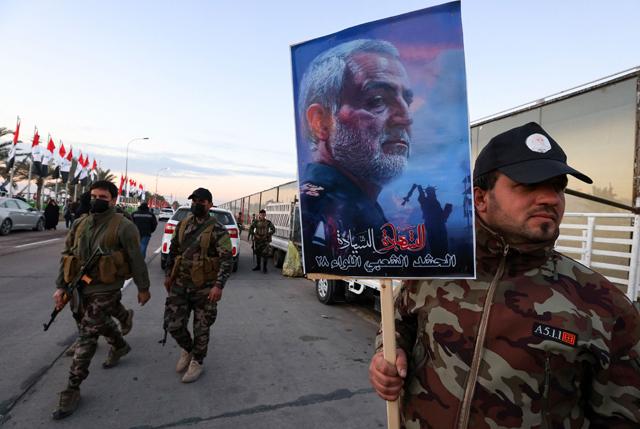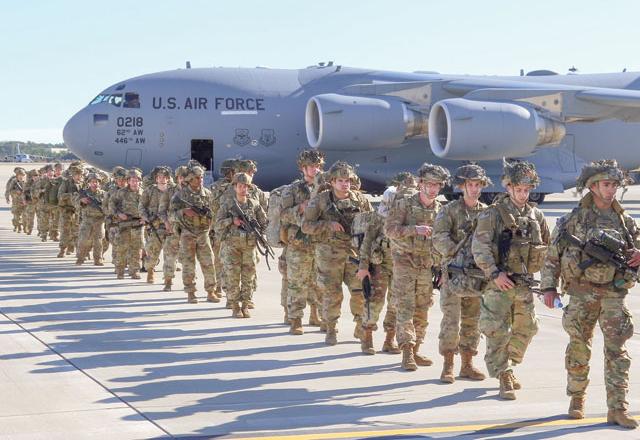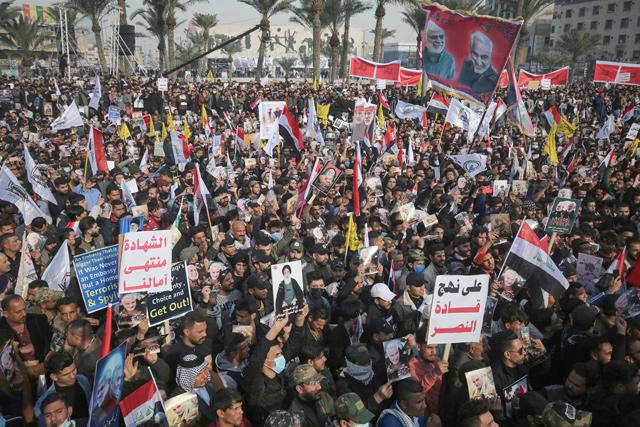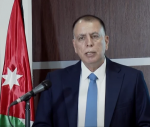You are here
Iraq set for conflict, even if US and Iran de-escalate
By AFP - Jan 09,2020 - Last updated at Jan 09,2020
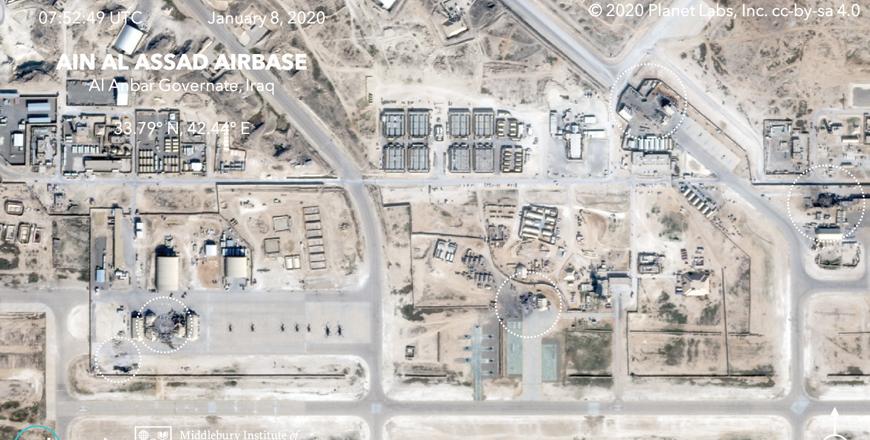
This January 8, satellite image released by Planet Labs Inc., and annotated analysis by Middlebury Institute of International Studies at Monterey, reportedly shows damage to Ain Al Asad US airbase in western Iraq, after being hit by rockets from Iran (AFP photo)
BAGHDAD — Arch-foes Tehran and Washington may be temporarily calling it even after Iranian missiles targeted US forces in Iraq, but analysts predict violent instability will keep blighting Baghdad.
"Iraq will remain a zone of conflict," said Randa Slim of the Washington based Middle East Institute.
Early Wednesday, Iran launched 22 ballistic missiles at bases in Iraq hosting American and other foreign troops, in a calibrated response to the killing of a top Iranian general in a US air strike last week.
Iran warned Iraq about the raids shortly before and in their immediate aftermath, foreign minister Mohammad Javad Zarif said Tehran had concluded its "proportionate" retaliation.
US President Donald Trump, too, said Iran "appears to be standing down".
The US president even suggested Tehran and Washington could work towards a nuclear deal while cooperating against extremists.
That hinted at a common desire to contain the fallout, but analysts say it would not be enough to spare Iraq.
“Both sides are so mobilised in Iraq, which has become such symbolic terrain for hitting out at the other,” said Erica Gaston of the New America Foundation.
Indeed, US troops and even the embassy in Baghdad had been hit by more than a dozen rocket attacks in recent months, which have killed one Iraqi soldier and an American contractor.
The attacks went unclaimed but the US blamed hardline elements of the Hashed Al Shaabi, an Iraqi military network incorporated into the state but linked to Tehran.
The strike that killed Iranian Gen. Qasem Soleimani outside Baghdad international airport on Friday also killed his top Iraqi aid and Hashed deputy chief Abu Mahdi Al Muhandis.
‘Who is the mediator?’
Just because the US and Iran have struck each other directly does not mean the Hashed would now sit on the sidelines, said Gaston.
“The Hashed is closer to the tip of the spear,” she said.
“There isn’t perfect command-and-control in the Hashed, which includes a lot of angry militiamen willing to take revenge on the US,” she added.
Bolstered by Iran’s attack, the Hashed said on Wednesday it would take its own steps avenge Muhandis’s death.
“That is a promise,” vowed leading member Qais Al Khazali.
Hours later, two rockets slammed into the Iraqi capital’s Green Zone, the high-security enclave where the US embassy, other foreign missions and some foreign troops are based.
Hashed factions decided in recent days to unite under a “resistance” coalition to oust US troops from Iraq.
The spectre of bloodshed was especially worrisome as there is no evident mediator between the parties, said Slim.
In Lebanon, Iran’s ally Hizbollah has repeatedly clashed with its sworn enemy Israel but the United Nations’ peacekeeping force in the south has usually intervened before the conflict could spin out of control.
But “who is the mutually liked mediator?” on Iraqi soil, Slim asked.
Baghdad has long warned that tensions between Tehran and Washington, which began deteriorating significantly in 2018, would bring devastating conflict to the entire region.
Iraq’s government had tried to strike a balance between the two countries, both of which have close political and military ties to various elements of Iraq’s elite.
Balance now ‘impossible’
But the stunning developments of the last week — from the killing of Soleimani to Wednesday’s pre-dawn strikes — also hugely exacerbated Iraq’s political crisis.
“It has made a balance impossible and pushed Baghdad squarely into Iran’s camp,” said Toby Dodge, a professor at the London School of Economics.
Figures like Iraq’s President Barham Saleh, who was seen as one of the most senior officials with close ties to Washington, would likely see their influence dwindle.
“If last night was the theatre of retaliation, what today brings is political consolidation and domination of the pro-Iran factions,” Toby said.
The Hashed’s political arm, the Fateh bloc, has already seized on anti-US sentiment over the last week to push for a total ouster of foreign troops from Iraqi territory.
Some 5,200 American troops and hundreds more British, French, Canadian and other forces are based in Iraq to help local forces defeat extremist sleeper cells.
On Wednesday, Iraqis’ reactions to Iran’s strikes were much tamer than the anger expressed at the US last week.
“Baghdad condemns the US publicly, but not Iran,” said Ramzy Mardini, a researcher and Iraq expert.
While appearing to be pro-Washington in the current climate carries a political cost, some political figures may be busy behind the scenes trying to salvage Iraq’s relationship with the US and restore some stability, however fragile.
But, Mardini warned, “if the crisis escalates, Baghdad’s space for manoeuvering will shrink. They’ll be forced to pick a side — and it won’t be the US”.
Related Articles
BAGHDAD — Thousands of supporters of an Iraqi alliance of armed groups on Saturday marked the upcoming second anniversary of a US drone stri
BAGHDAD — Tens of thousands of Iraqis, many chanting "Death to America", on Saturday mourned a top Iranian commander and others killed in a
BAGHDAD — Thousands of Iraqi mourners chanted "revenge" and "no to America" on Sunday, one year after a US drone strike killed Iran's revere


